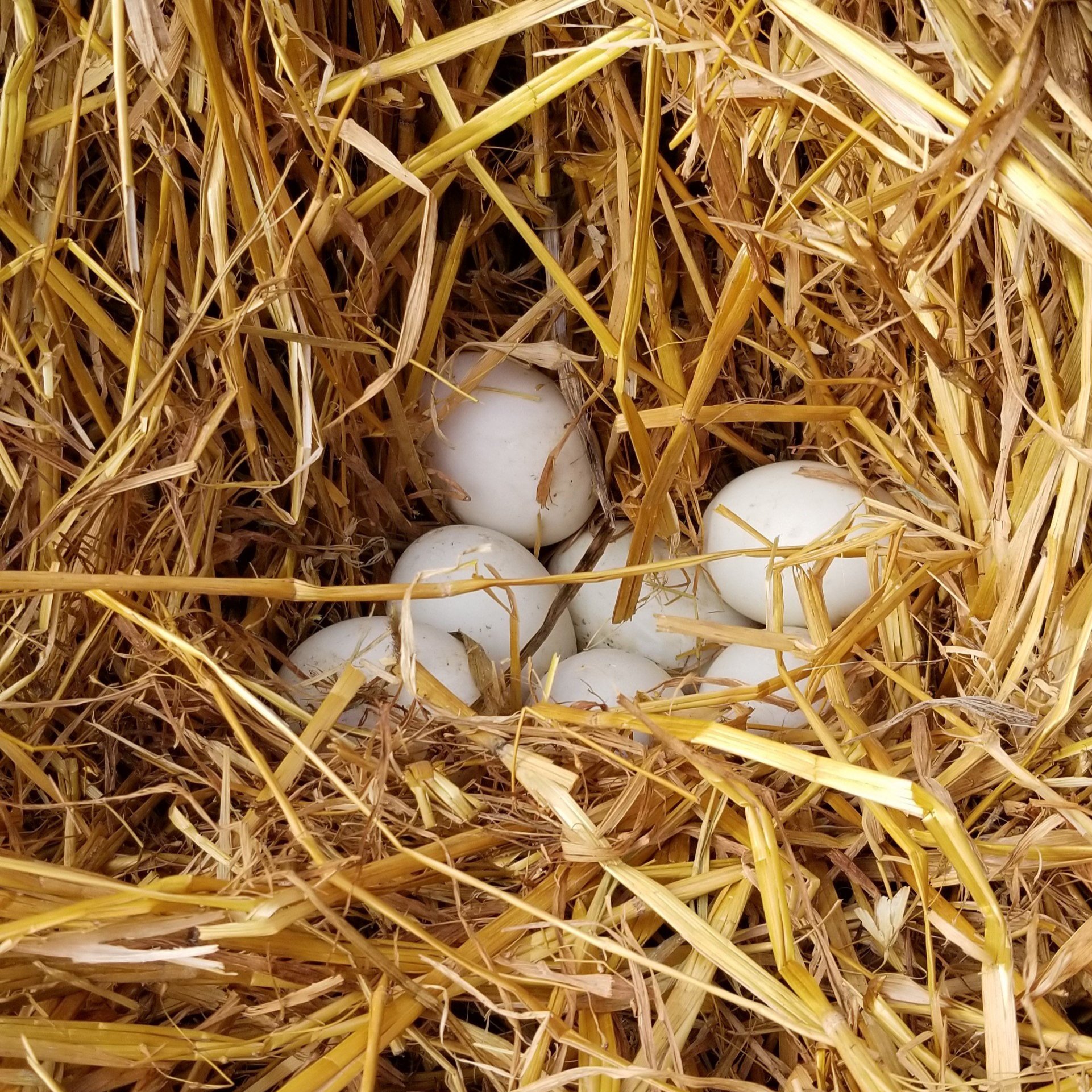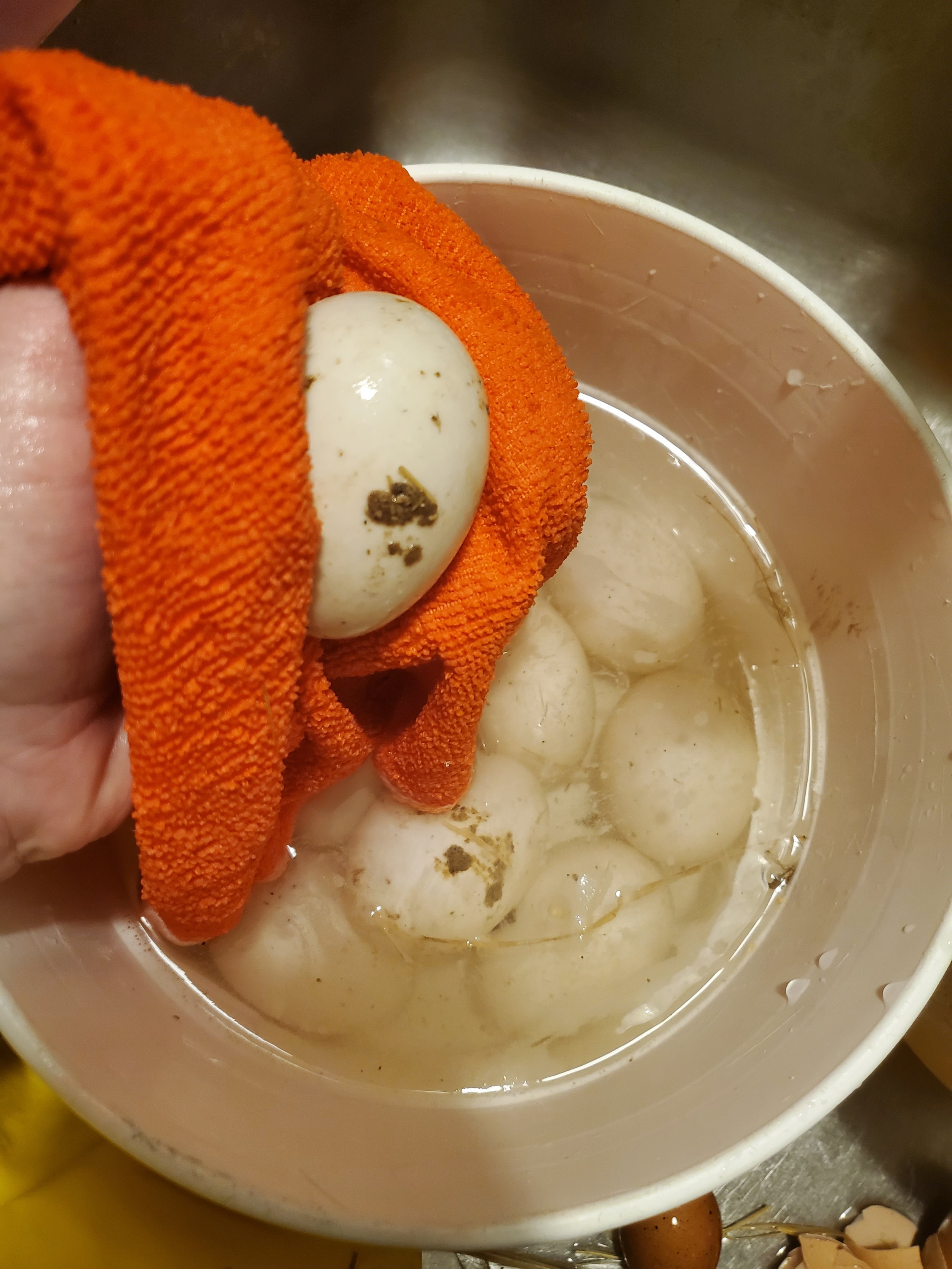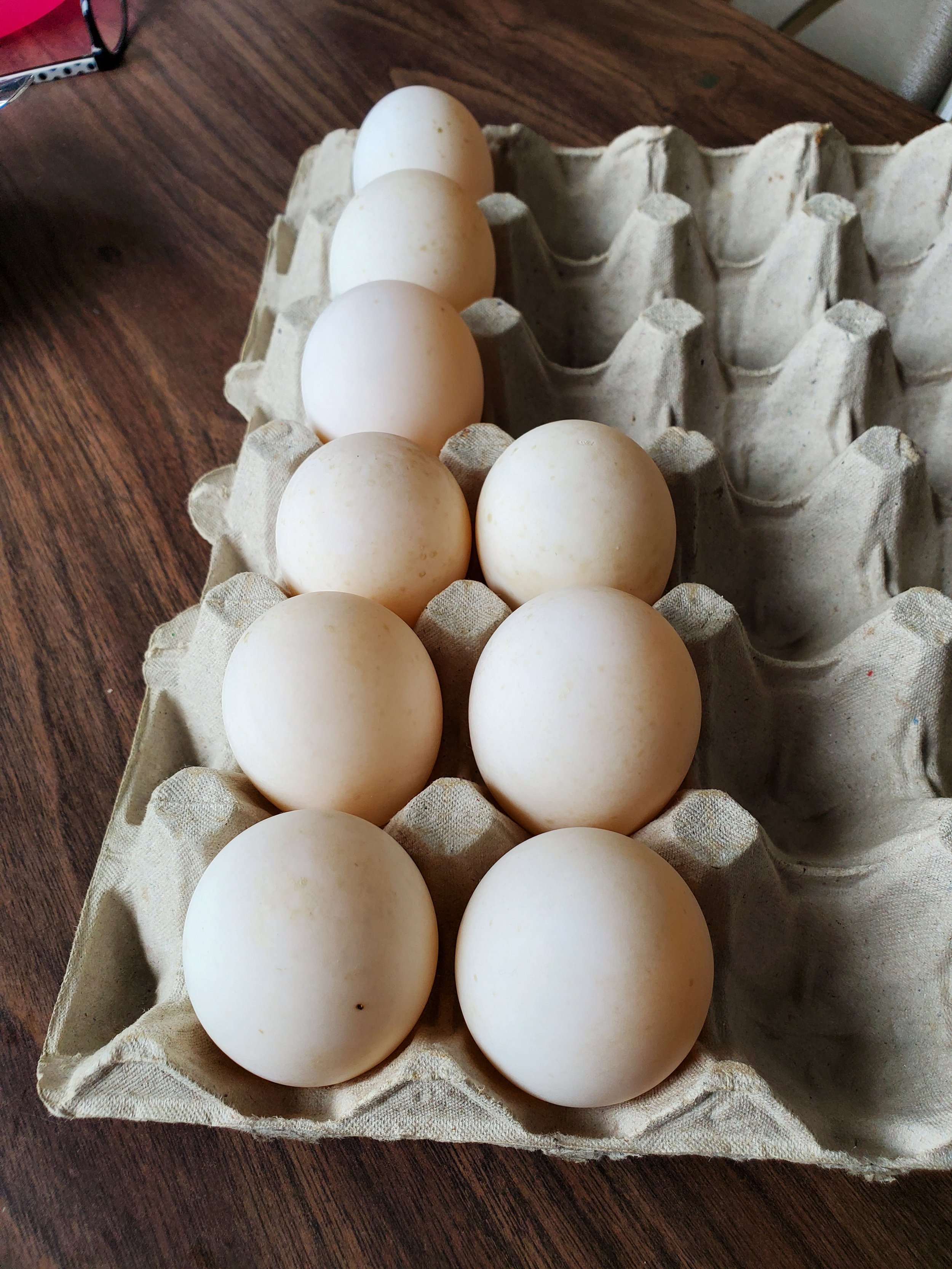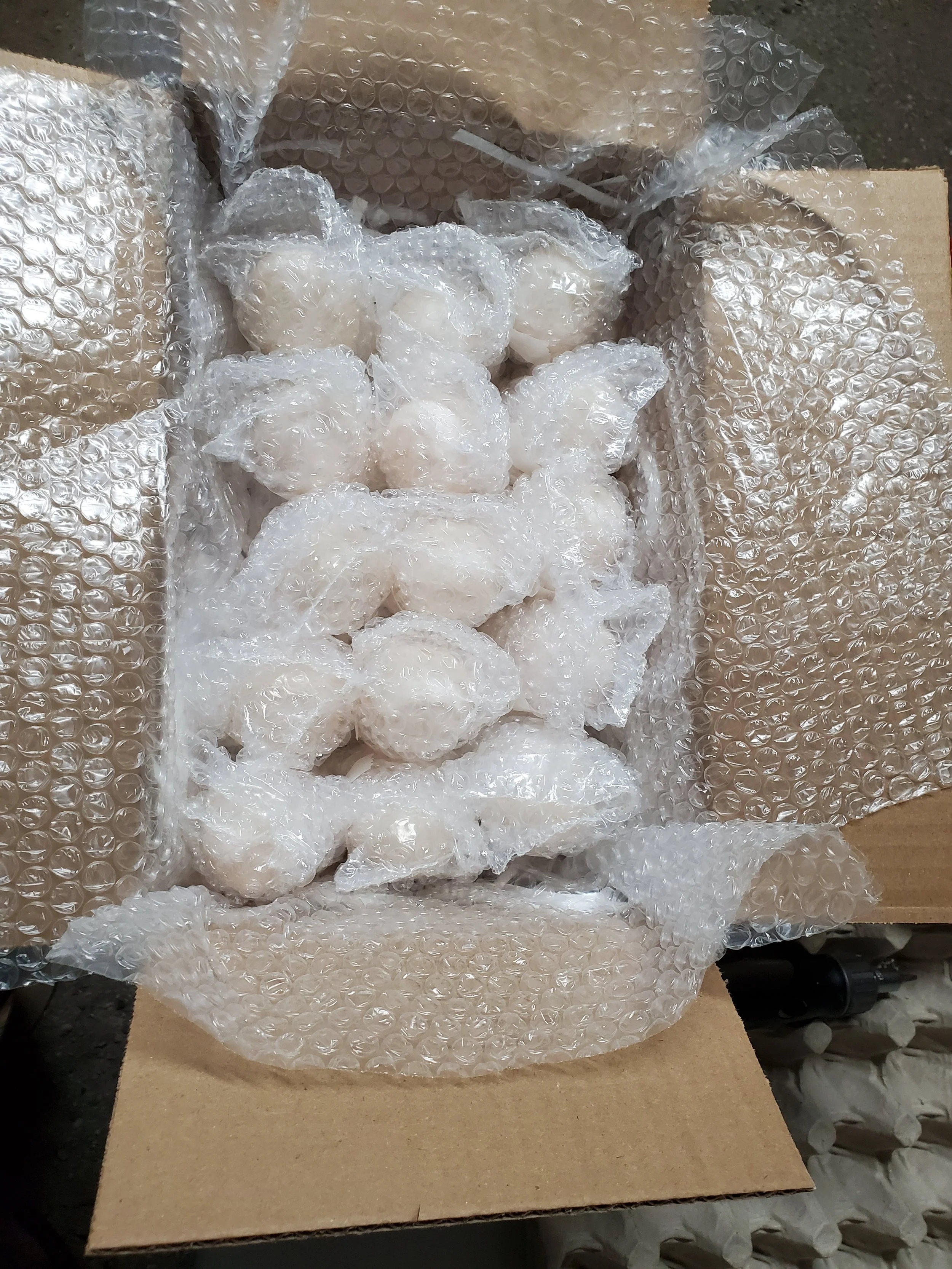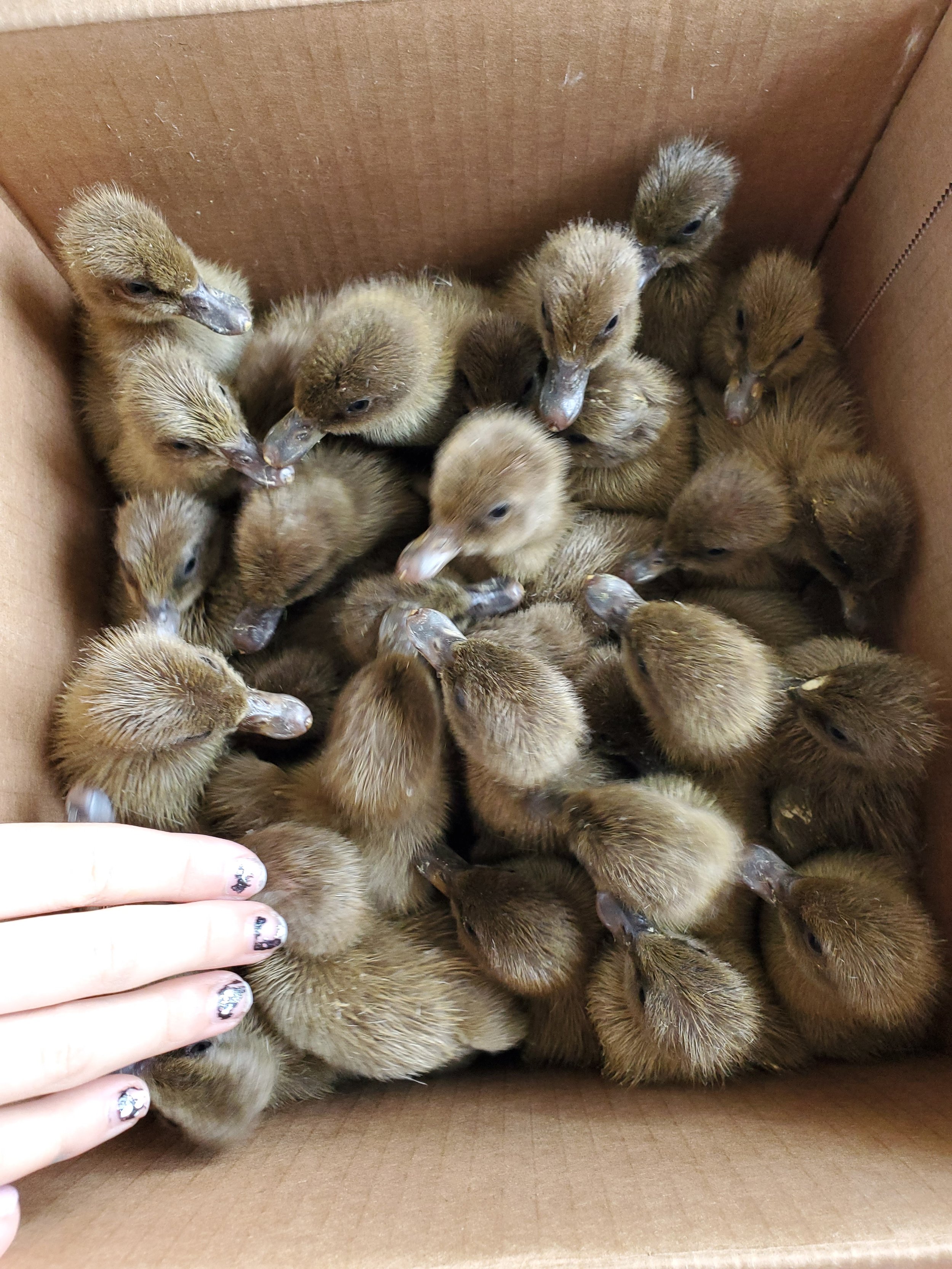Hatch it!
Hatch it!
How do you go from delicate orb to fluffy duckling? The truth is that what happens inside an egg during incubation is nothing short of magic! Let’s go over some tips and tricks to help an egg come to life!
Egg Collection
Make sure it's neither extremely cold or extremely hot when you collect eggs for incubation. Eggs that have been frozen or that have sat in very hot sun will not likely hatch.
Ducks are messy creatures but more often than not, they will choose a moderately cleanish spot to lay their eggs if they have access to such a spot. Ducks love making nests. Provide a nesting corner and some fluffy material and they might use it instead of the mud puddle…at least most of the time!
What if eggs are dirty?
There's a LOT of disagreement online about whether to incubate dirty eggs. I feel that most of these debates come from people who mostly incubate chicken eggs which are QUITE different to duck eggs in certain respects like BLOOM!
Duck egg have a MUCH heavier bloom than land birds…in fact it's so solid that in order to wash it off I have to use a scouring pad and vigorously scrub it off. So in my opinion, you are doing absolutely no harm at all by running duck eggs under lukewarm water and gently rinsing off the poop and mud before incubating...that bloom is ON there...it isn't just rinsing off.
The eggs came in the mail!
When you pick up your eggs from the post office, carefully unwrap them and place tip down in a room temperature environment. Let them sit for a few hours to rest and acclimatize. You don’t want to pop ice cold eggs into a warm incubator!
You may choose to candle to check for loose air cells or cracks resulting from shipping.
Time to incubate!
Temperature
Set the incubator to 99 Fahrenheit and let it run until the temperature stabilizes.
Some incubators are notoriously inaccurate when it comes to the temperature read out on the digital display. ALWAYS cross check your temp with other thermometers and even cross check the cross checking thermometer. In my experience, temp that's off for a short period isn't too damaging but temps that are consistently off for the whole Incubation definitely are.
Humidity
Humidity seems to be less touchy than temp. As long as it's mostly between 45 and 55 for incubation you should be fine.
Turning
Duck eggs love to be turned laying on their sides!! Many people have terrible luck incubating duck eggs in a tip down land bird egg turner. Duck eggs need to lay flat and be hand turned OR a turner that allows for the eggs to lay on their sides also works well.
Turn eggs horizontally 180 degrees each time. Turn gently to reduce injury to the delicate embryo. A turning schedule that works for us is: 7am, 3pm, 11pm. Eight-hour intervals between turning is best though slight variability is fine. Relax and don’t rush while turning…a slight cooling of the eggs while you are performing this task may be beneficial to the incubation process.
The fun of candling!
Candling is the process of shining a very bright light through the egg shell to check the process of the developing egg. Duck eggs are incredibly easy to candle compared to chicken eggs! I find that for some reason you can just see everything in much greater detail. I often am able to observe the tiny heart beating near the surface of the shell!
We candle often! Since the incubator is open a lot for egg tuning anyways, it’s simple to candle a few eggs regularly. Development is just noticeable on day 4, and we continue to check the progress all along, always removing any eggs that stop developing.
Hatching Time!
Lockdown is the time period after you stop turning the eggs until the eggs hatch in which you’re ‘supposed’ to leave the incubator lid religiously closed…I don't like the term “lockdown” because it makes people panic when they need to open the incubator and you shouldn't need to. Duck eggs OFTEN pip way way earlier than you'd think...I just had a batch pip on day 25. They won't hatch til day 28 but they're pipped! I like to get mine off the turner (or stop hand turning or move them to a hatcher) BEFORE they pip. But if you look in the incubator and get surprised by early pips...don't freak out. Just stop turning, move your eggs to wherever you want them to hatch and pour a bunch of very warm water in whatever water receptacle your incubator has. The goal is to pump the humidity up to 55-66 if it's higher...fine! You don't want those early pips to dry out.
Helping. Most ducklings will hatch just fine on their own. Keep in mind that sometimes they pip early and then just seem to sit there. That's fine! Leave them. But if you do feel for some reason you need to help...especially when it's past due date...do it! If you start peeling back the shell and the membrane starts to bleed...stop! (If it's day 30 and you have weak bleeding ducklings that's a sure sign your temp was too low) moisten the exposed membranes with tiny drops of warm water, pump the humidity in the incubator and set the egg back in the incubator. For better or worse...very bleeding ducklings need to stay in the shell longer. Sometimes they don't make it. But if you pull them out...they might just as easily bleed out.
They’re hatched!!
They’re hatched!! Keep the ducklings in the incubator till they've fluffed. Then put them into a nice warm brooder with water they CAN'T climb into and space to get out from under the heat source if they want to. Ducklings need the least amount of heat compared to quail, turkeys and chickens. They still need heat but if you're used to chickens, you might accidentally make it too hot for ducklings. Sprinkle some floaties on the water so they can see it and that's it!

